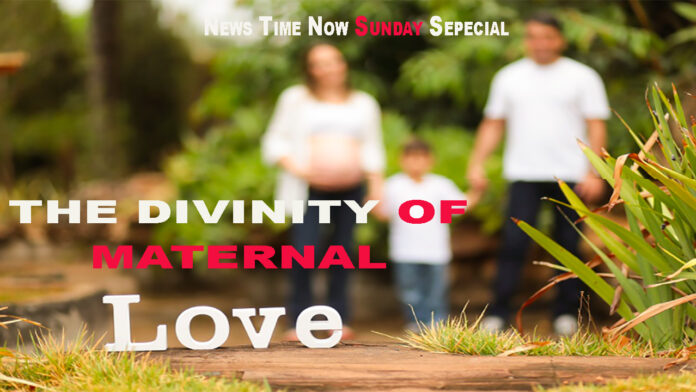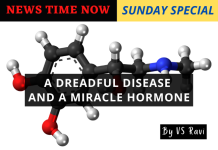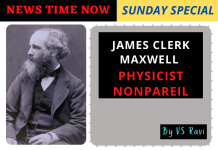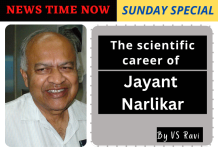Children, look in those eyes, listen to that dear voice, notice the feeling of even a single touch that is bestowed upon you by that gentle hand! Make much of it while you have the most precious of all gifts, a loving mother. Read the unfathomable love of those eyes: the kind anxiety of that tone and look, however, slight your pain. In afterlife you may have friends, fond dear friends but never will you have again the inexpressible love and gentleness lavished upon you which none but a mother bestows. – Macaulay
Nobler and truer words have never been said about maternal life by anyone else.
By studying the habits of marsupials (i.e. mammals whose females have a pouch for carrying their babies born in an incompletely developed state), scientists are learning new facts about the needs of vulnerable newborns. They have come to the conclusion that baby kangaroos and children appear to have more things in common than one would have imagined.
A human infant cannot be considered as a ‘finished product’. By contrast, baby animals seem to be better equipped to deal with practical situations and problems even at an early stage in life. A newborn elephant baby, a newborn fallow deer, and a newborn wildebeest are able to run with the herd shortly after birth, a factor essential for survival in the jungle. A seal baby, only a few weeks old, can live in the oceans by itself. On the other hand, human babies cannot even crawl until they are eight to ten months old; they cannot walk or talk until they are about a year and a half. The question arises as to why human babies are born relatively immature and why they remain so, longer than any other animal.
Similar to the newborn marsupial that crawls over its mother’s damp fur to her pouch, to spend up to 130 days there, completing its development, the human baby at birth is only half-formed. One would therefore be justified in concluding that a child’s birth is not the end of the gestation period but a sort of connecting link between development within the womb of the mother and growth outside it.
Scientists now know that the young ones of elephant, deer, seal and human being all have long gestation periods, ranging from an average period of 630 days for the elephant to about 266 days for humans. Yet, only human babies seem to be born so immature, their development is divided into a period inside the womb (called uterogestation) and a period outside the womb (called exterogestation). It is believed that if human babies were not born when they are, they would not be born at all!
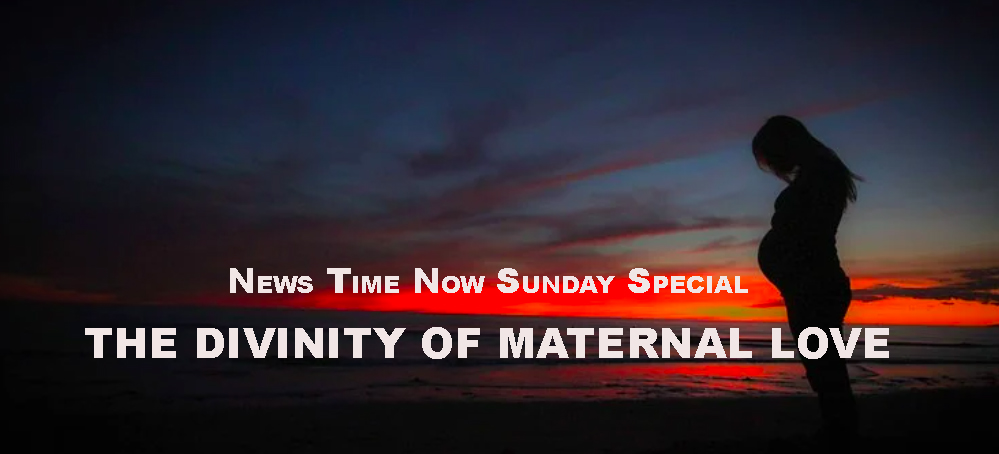
At the time of birth, the weight of the brain of an average 2.5 kg human baby is about 380 g. In order to be as talented and as capable as a newborn elephant, deer or seal, the human infant would need the 825 g brain of a one-year-old. But it is quite obvious that it would not be possible for infants to wait until they have grown a brain that big before being born. In such a situation their heads would be too large to pass through the mother’s birth canal. They must be born with the biggest possible brains that still allows them to get out and then let their brains grow after birth.
It is believed the period of exterogestation is over when a child is in a position to crawl on all fours. It is amazing that the average period for this achievement is about 266 days—exactly the same length as the average pregnancy.
If this two-stage theory of gestation were to be accepted as true, then it means that the needs of infants are not adequately being met. In other words, we do not give attention to gestation outside the womb.
The warmth with which the mother enfolds her child while breast-feeding is psychologically analogous to the pouch enclosing a suckling marsupial. However, baby marsupials with free access to their mother’s breast suckle when they feel like, whereas human infants are generally suckled when their mothers decide they ought to be. Human babies are, therefore, in a much more dependent, indeed, much more hazardous state as compared to marsupials; they should be nursed on demand rather than by the clock.
When the human infant is breastfed by its mother, the pair make eye contact which, according to scientists, is vital to the psychological development of the child. The human mother lovingly talks and sometimes sings a lullaby to the child, while at the same time, cuddling, kissing and caressing the infant. As important as breastfeeding itself to the child, are its associated sensory stimuli— the sights, sounds, smells, tastes and warm feelings.
Research has shown that deprivation of maternal care in many animals leads to failure of both individual and social development. The human infant is in many ways more dependent on such socio-psychological attention and cares not merely because it is born in such an immature state, but also because becoming a full-fledged and mature human being is more complicated than becoming a full-fledged and mature baboon or elephant.
Extolling the virtues of parental love, Bertrand Russel observed.
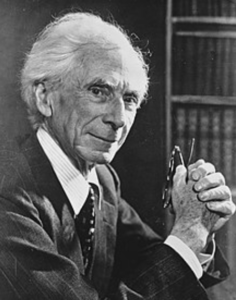
“The value of parental affection to children lies largely in the fact that it is more reliable than any other affection. One’s friends like one for one’s merits, one’s lovers for one’s charms; if the merits or the charms diminish, friends and lovers may vanish. But it is in times of misfortune that parents are most to be relied upon, in illness, and even in disgrace if the parents are of the right sort. We all feel pleasure when we are admired for our merits, but most of us are sufficiently modest at heart to feel that such admiration is precarious. Our parents love us because we are their children, and this is an unalterable fact so that we feel safer with them than with anyone else. In times of success, this may seem unimportant, but in times of failure it affords consolation and security not to be found elsewhere”
While I do agree with Russel, I would like to go a little further and say that even in parental love, a mother’s love is greater by virtue of the fact that she has physically carried a child in her womb, for about 266 days as mentioned above whereas a father has no biological role after impregnating the woman. Of course, this is not to belittle his love for his progeny. They are also his children and this knowledge is enough to make him want to take care of them throughout his life. But he shows his love towards them in his own way throughout the thorny path of life, in sickness, in education, employment and various activities. Having said that one must have to admit that the balance of the equation lies in favour of maternal love.
Therefore we would have to agree with Washington Irwing‘s views expressed in…
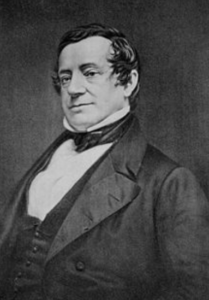
” A father may turn his back on his child; brothers and sisters may become inveterate enemies; husbands may desert their wives and wives their husbands. But a mother’s love endures through all; in good repute, in bad repute, in the face of the world’s condemnation a mother still loves on, and still hopes that her child may turn from his evil ways and repent; still, she remembers the infant smiles that once filled her bosom with raptures, the merry laugh, the joyful shout of his childhood, the opening promise of his youth; and she can never be brought to think him all unworthy.






























